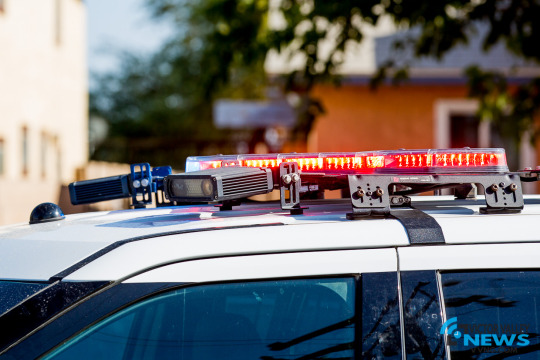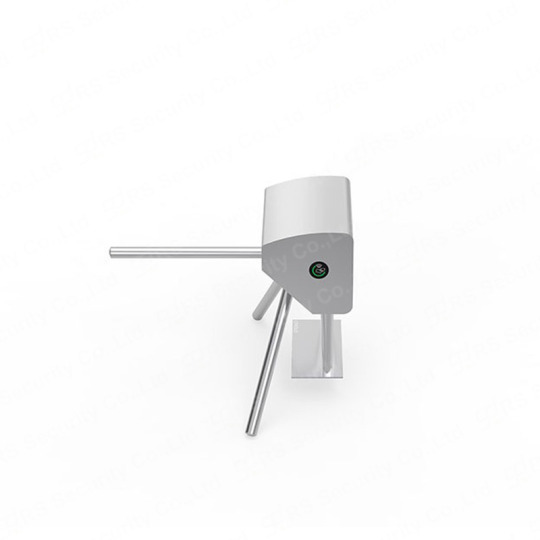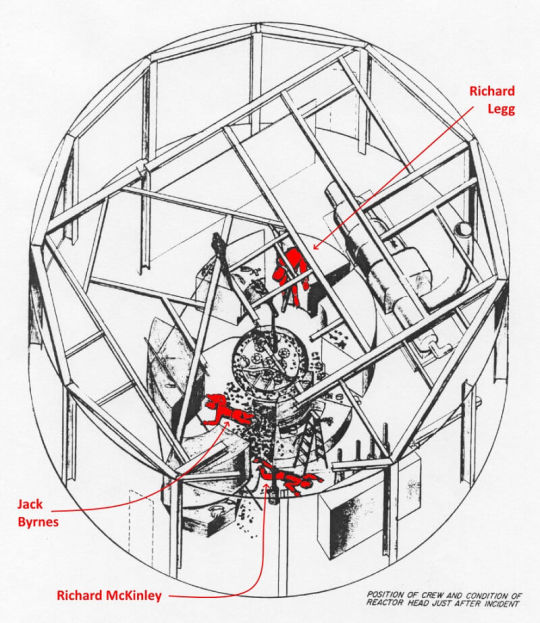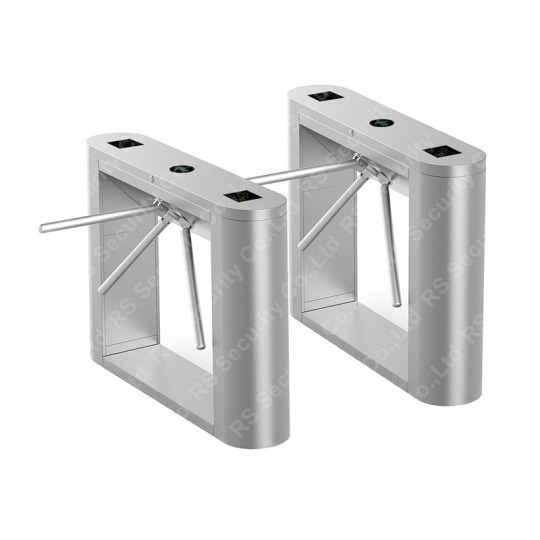#alpr
Text

Hungarian soprano singer Gitta Alpár on a vintage postcard
#alpr#tarjeta#postkaart#sepia#carte postale#soprano#singer#ansichtskarte#gitta alpár#briefkaart#photo#photography#postal#postkarte#gitta#vintage#postcard#historic#hungarian#ephemera
2 notes
·
View notes
Text
Hesperia City Council Approves Homeland Security Grant for Advanced ALPR Patrol Vehicle
HESPERIA, Calif. (VVNG.com) – The Hesperia City Council has authorized an upgrade to the city’s law enforcement capabilities by approving the purchase of a cutting-edge Automated License Plate Reader (ALPR) system. This move came after a recent city council meeting where council members gave the green light for the city manager to execute a purchase agreement totaling $34,840 with Vigilant…

View On WordPress
0 notes
Text
Detroit By The Numbers: September Data Roundup
25 million
License plates read by “automatic license plate readers (ALPR) in the last 90 days (Detroit Free Press)
6,634
Detroit’s downtown population was noted to be up 25% in the Fall Forum, but also noted to be one of the smallest downtown populations among peer cities (Downtown Detroit Partnership)
1
Historic building saved, hopefully. Preservation Detroit pushed back hard for the City…

View On WordPress
#2023#ALPR#data#Detroit#Detroit By The Numbers#Detroit Pistons#downtown#Downtown Detroit Partnership#historic#population#Preservation Detroit#September
0 notes
Text
Pagos con patente del auto llegan gracias a Weigopay
Weigopay, la nueva plataforma de pago del grupo Boldt, utilizará como motor de pago los servicios de Payway para cobrar con tarjetas de crédito y débito mediante la patente del automóvil.
(more…) “”

View On WordPress
#ALPR#auto#Boldt#Boldt Vial#Emiliano Porciani#Gateway#Grupo Boldt#Guillermo Pierazzoli#NFC#pagos#patente#Payway#Prisma Medios de Pago#QR#Weigopay
0 notes
Text
.
#oomf qui posye une photo de son starbucks non j'abandonne#alprs qu'elle est sur Paris actuellement#où y'a des cafés à chaque coin de rue#je lui laissais le bénéfice du doute quand elle avait posté son mcdo mais là nan frère elle fait pas d'efforts#apres c pas si surprenant quand on sait qu'elle avait acheté le jeux h**** p***** et qu'elle soutient lucas#je sais pas je me voilais la face vu que c littéralement oomf😭😭😭😭😭😭😭😭😭😭😭😭😭😭😭#je lui ai dis qque chose cette fois ci
0 notes
Text

Tripod Turnstile Overview
Tripod Turnstile, Swing Turnstile, and Flap Turnstile( RS Security Co., Ltd: www.szrssecurity.com) are modern-day control gadgets for pedestrian flows. They are utilized in places where the entryway and also leave of individuals need to be regulated, such as smart communities, canteens, resorts, galleries, gymnasiums, clubs, subways, stations, docks, and so on location. Making use of Tripod Turnstile, Swing Turnstile, and Flap Turnstile can make the flow of people orderly.
Tripod Turnstile, Swing Turnstile, Flap Turnstile are made use of in mix with smart cards, fingerprints, barcodes and also various other identification system devices to form an intelligent accessibility control channel control system; they are made use of in mix with computer systems, access control, presence, billing management, ticket systems and also various other software application to form a The smart Turnstile Gate thorough monitoring system can recognize features such as accessibility control, presence, intake, ticketing, and also present limiting.
This Turnstile Gate management system belongs to the "all-in-one card" and is mounted at passages such as areas, factories, clever buildings, canteens, and so on. It can finish various management functions such as staff member card travel control, attendance at leave work as well as dishes, as well as eating.
Tripod Turnstile system features
Convenient and also quick: read the card in and out with one swipe. Make use of the licensed IC card and also wave it before the smart Tripod Turnstile visitor to finish the Tripod Turnstile gate opening and also charge recording work. The card reading is non-directional and also the reading as well as composing time is 0.1 seconds, which is practical as well as fast.
Safety and security as well as privacy: Use history or regional verification, licensed issuance, and one-of-a-kind identity, that is, the card can only be utilized in this system, and also it is risk-free and also private.
Reliability: Card radio frequency induction, reputable and also steady, with the capacity to court and assume.
Flexibility: The system can flexibly establish entrance and leave control employees approvals, period control, cardholder legitimacy and also blacklist loss reporting, including cards and also various other functions.
Versatility: Through authorization, the user card can be made use of for "one-card" monitoring such as auto parking, attendance, accessibility control, patrol, usage, and so on, making it easy to understand numerous uses of one card.
Simpleness: Easy to mount, basic to link, the software program has a Chinese user interface as well as is very easy to run.
Tripod Turnstile, Swing Turnstile, as well as Flap Turnstile( RS Security Co., Ltd: www.szrssecurity.com) are modern control tools for pedestrian flows. The usage of Tripod Turnstile, Swing Turnstile, and also Flap Turnstile can make the circulation of people orderly.
Utilize the authorized IC card and also wave it in front of the wise Tripod Turnstile viewers to complete the Tripod Turnstile gate opening and charge recording work.
#Tripod Gates Turnstile#Gadgets Gifts#Flap Turnstiles#Alpr Led Display#Bollard Stainless#Mobile Column Lift#One Column Car Lift#Back Up Power Supply#3 Arm Pedestrian Gate#Wireless Remote Switch
0 notes
Text
Pvutain ça me saoul je tend dds perches longues comme mes jambes fois 3 et ils captend PAS
#Ou alprs ils sont pas intéressés mais jsuis dans le denis about it#journaliteuse#Im so BOREDDDDDDDD
0 notes
Text
Discriminatory AI tools like facial recognition, automated license plate readers (ALPRs), gunshot detection technology, and predictive policing programs are being used throughout the criminal legal system, supercharging biased policing practices.
Right now the Department of Justice is accepting comments about the use of AI in policing, specifically focused on privacy, civil rights, and civil liberties concerns. We must make it clear to the Department of Justice that biased, rights-infringing AI should not be used.
Click the above link to read more and instantly send a comment to the Department of Justice (USA)
(Do NOT use this post for AI art discourse or other off topic discussion)
4 notes
·
View notes
Text
Seventy-one California police agencies in 22 counties must immediately stop sharing automated license plate reader (ALPR) data with law enforcement agencies in other states because it violates California law and could enable prosecution of abortion seekers and providers elsewhere, three civil liberties groups demanded Thursday in letters to those agencies.
The letters from the Electronic Frontier Foundation (EFF), the American Civil Liberties Union of Northern California (ACLU NorCal), and the American Civil Liberties Union of Southern California (ACLU SoCal) gave the agencies a deadline of June 15 to comply and respond. A months-long EFF investigation involving hundreds of public records requests uncovered that many California police departments share records containing detailed driving profiles of local residents with out-of-state agencies.
ALPR camera systems collect and store location information about drivers, including dates, times, and locations. This sensitive information can reveal where individuals work, live, associate, worship—or seek reproductive health services and other medical care.
“ALPRs invade people’s privacy and violate the rights of entire communities, as they often are deployed in poor and historically overpoliced areas regardless of crime rates,” said EFF Staff Attorney Jennifer Pinsof. “Sharing ALPR data with law enforcement in states that criminalize abortion undermines California’s extensive efforts to protect reproductive health privacy.”
The letters note how the nation’s legal landscape has changed in the past year.
“Particularly since the Supreme Court’s decision in Dobbs v. Jackson Women’s Health Organization, which overturned Roe v. Wade, ALPR technology and the information it collects is vulnerable to exploitation against people seeking, providing, and facilitating access to abortion,” the letters say. “Law enforcement officers in anti-abortion jurisdictions who receive the locations of drivers collected by California-based ALPRs may seek to use that information to monitor abortion clinics and the vehicles seen around them and closely track the movements of abortion seekers and providers. This threatens even those obtaining or providing abortions in California, since several anti-abortion states plan to criminalize and prosecute those who seek or assist in out-of-state abortions.”
Idaho, for example, has enacted a law that makes helping a pregnant minor get an abortion in another state punishable by two to five years in prison.
The agencies that received the demand letters have shared ALPR data with law enforcement agencies across the country, including agencies in states with abortion restrictions including Alabama, Idaho, Mississippi, Oklahoma, Tennessee, and Texas. Since 2016, sharing any ALPR data with out-of-state or federal law enforcement agencies is a violation of the California Civil Code (SB 34). Nevertheless, many agencies continue to use services such as Vigilant Solutions or Flock Safety to make the ALPR data they capture available to out-of-state and federal agencies.
California law enforcement’s sharing of ALPR data with law enforcement in states that criminalize abortion also undermines California’s extensive efforts to protect reproductive health privacy, specifically a 2022 law (AB 1242) prohibiting state and local agencies from providing abortion-related information to out-of-state agencies.
For one of the new letters from EFF, ACLU NorCal, and ACLU SoCal: https://eff.org/document/sample-alpr-demand-letter-tracy-police-department
For information on how ALPRs threaten abortion access: https://www.eff.org/deeplinks/2022/09/automated-license-plate-readers-threaten-abortion-access-heres-how-policymakers
For general information about ALPRs: https://www.eff.org/pages/automated-license-plate-readers-alpr
Agencies that received the demand letters include:
• Alhambra Police Department (Los Angeles County)
• Antioch Police Department (Contra Costa County)
• Arcadia Police Department (Los Angeles County)
• Beaumont Police Department (Riverside County)
• Brawley Police Department (Imperial County)
• Brentwood Police Department (Contra Costa County)
• Buena Park Police Department (Orange County)
• Burbank Police Department (Los Angeles County)
• Chino Police Department (San Bernardino County)
• Clovis Police Department (Fresno County)
• Cypress Police Department (Orange County)
• Desert Hot Springs Police Department (Riverside County)
• Downey Police Department (Los Angeles County)
• El Centro Police Department (Imperial County)
• El Dorado County Sheriff's Office (El Dorado County)
• Escondido Police Department (San Diego County)
• Folsom Police Department (Sacramento County)
• Fontana Police Department (San Bernardino County)
• Fountain Valley Police Department (Orange County)
• Garden Grove Police Department (Orange County)
• Gilroy Police Department (Santa Clara County)
• Hemet Police Department (Riverside County)
• Hercules Police Department (Contra Costa County)
• Hermosa Beach Police Department (Los Angeles County)
• Humboldt County Sheriff's Office (Humboldt County)
• Imperial County Sheriff's Office (Imperial County)
• Imperial Police Department (Imperial County)
• Kern County Sheriff's Office (Kern County)
• Kings County Sheriff's Office (Kings County)
• La Habra Police Department (Orange County)
• La Palma Police Department (Orange County)
• Laguna Beach Police Department (Orange County)
• Lincoln Police Department (Placer County)
• Lodi Police Department (San Joaquin County)
• Madera Police Department (Madera County)
• Manteca Police Department (San Joaquin County)
• Menifee Police Department (Riverside County)
• Merced Police Department (Merced County)
• Montebello Police Department (Los Angeles County)
• Monterey Park Police Department (Los Angeles County)
• Murrieta Police Department (Riverside County)
• Novato Police Department (Marin County)
• Oakley Police Department (Contra Costa County)
• Ontario Police Department (San Bernardino County)
• Orange County Sheriff's Department (Orange County)
• Orange Police Department (Orange County)
• Oxnard Police Department (Ventura County)
• Palm Springs Police Department (Riverside County)
• Palos Verdes Estates Police Department (Los Angeles County)
• Pasadena Police Department (Los Angeles County)
• Pittsburg Police Department (Contra Costa County)
• Rio Vista Police Department (Solano County)
• Ripon Police Department (San Joaquin County)
• Riverside County Sheriff's Department (Riverside County)
• San Bernardino County Sheriff's Department (San Bernardino County)
• San Bernardino Police Department (San Bernardino County)
• San Joaquin County Sheriff's Office (San Joaquin County)
• San Pablo Police Department (Contra Costa County)
• San Rafael Police Department (Marin County)
• San Ramon Police Department (Contra Costa County)
• Seal Beach Police Department (Orange County)
• Simi Valley Police Department (Ventura County)
• Stockton Police Department (San Joaquin County)
• Torrance Police Department (Los Angeles County)
• Tracy Police Department (San Joaquin County)
• Tustin Police Department (Orange County)
• Walnut Creek Police Department (Contra Costa County)
• West Covina Police Department (Los Angeles County)
• Westminster Police Department (Orange County)
• Westmorland Police Department (Imperial County)
• Woodland Police Department (Yolo County)
That’s 71 agencies in 22 counties:
• 12 in Orange County
• 11 in Los Angeles County
• 8 in Contra Costa County
• 7 in Riverside County
• 6 in San Joaquin County
• 5 in San Bernardino County
• 5 in Imperial County
• 2 in Ventura County
• 2 in Marin County
• 1 each in El Dorado, Fresno, Humboldt, Kern, Kings, Madera, Merced, Placer, Sacramento, San Diego, Santa Clara, Solano, and Yolo counties
#us politics#news#electronic frontier foundation#2023#street-level surveillance#privacy#invasion of privacy#reproductive justice#reproductive freedom#reproductive rights#reproductive health#abortions#abortion bans#automated license plate reader#automated license plate reader data#American Civil Liberties Union#American Civil Liberties Union of Northern California#American Civil Liberties Union of Southern California#location information#fascist police state#police state#police the police#California
28 notes
·
View notes
Text
EFF Issues New Warning After Discovery of Automated License Plate Reader Vulnerabilities

Source: https://www.securityweek.com/eff-issues-new-warning-after-discovery-of-automated-license-plate-reader-vulnerabilities/
More info: https://www.eff.org/deeplinks/2024/06/new-alpr-vulnerabilities-prove-mass-surveillance-public-safety-threat
2 notes
·
View notes
Quote
> 携帯電話基地局のデータは、10 年間ほぼ同じ方法で使用されてきました。 そのとき私は怒っていました。 私は今、もっと怒っています。 一方が他方を暗示しているわけではないので、このような議論はやめてください。 そして、かつてそうではなかったが今はそうなっている人がいるとしても、誰が気にするでしょうか。 あなたが流行に敏感だという議論は何ですか? それは問題の解決ではありません。 私は人々が権利を守る運動に参加するのを妨げたくありません。 彼らがアルミ箔の帽子をかぶって参加したのか、それともこれらの残虐行為に文字通り満足して昨日参加したのかは私には関係ありません。 あなたが今ここにいるなら、それが重要なのです。 > プライバシーは長い間死んでいました。 最悪なのは、人々が無関心なことだ。 雄牛、雄牛。 反撃する人もたくさんいます。 自分が話せない言語で広告が表示されるのは、少なくとも良い兆候だと確信しています。 確かに NSA には勝てないかもしれないが、大規模な監視には勝てるだろうか? 10%を超えることはできるでしょうか? 50%? 80%? 1% は 0% よりも優れており、すべてがバイナリであると判断するとプライバシーは失われます。 人々は気にかけます。 人々は疲れています。 人々は敗北感を感じます。 これらは別のものです。 もし人々が気にしなければ、Apple (そして Google でさえも) がプライバシーに配慮していると宣伝することはないだろう。 Signal は存在せず、5,000 万人のユーザーもいないでしょう。 横になって諦める時ではありません。 > mingus88 36 分前 | 親 | コンテキスト | 旗 | オン: 特定のあなたを誰が視聴したかを特定するよう Google に命令... 携帯電話の塔のデータは、10 年前からほぼ同じ方法で使用されてきました。 犯罪が起きた頃、たまたま大都市の基地局の前を通りかかりましたか? 私たち全員がそうしています。 そうですね、IEMI は携帯電話タワーのダンプに含まれていました。 おそらく何十回も。 最近、たまたまベイエリアのどこかの橋を車で通過しましたか? 市営車両があなたを追い越し、ALPR カメラであなたのナンバープレートを捉えましたか? 何だと思う? LEO がその時間/場所の犯人を見つけるために、あなたの名前をデータベース検索しました。 プライバシーは長い間死んでいました。 最悪なのは、人々が無関心なことだ。 > スノーデン ファイルは何も変更しませんでした。 十分な変化はありませんでしたが、何もないわけではありません。
Google、特定の YouTube 動画を視聴したユーザーを特定するよう命令 | ハッカーニュース
2 notes
·
View notes
Text
In the 1990s, London built the Ring of Steel—a network of concrete barriers, checkpoints, and thousands of video cameras around the historic City of London—after bombings by the Irish Republican Army. The idea was to monitor everyone entering and leaving the Square Mile, what the The New York Times later called “fortress urbanism.”
After the September 11, 2001, attacks, city planners looking to defend New York from terrorism turned to London and fortress urbanism for inspiration. Fusion centers, where US law enforcement agencies share intelligence at a federal level to be analyzed and build a bigger picture of crime, had been around for a few years. But officials began asking, what if fusion centers could be localized? What if local law enforcement could analyze and gather masses of intelligence from one city?
In 2005, they answered with the first “real-time crime center” (RTCC), a sprawling network of CCTV and automatic license plate readers (ALPR) linked to a central hub in the New York Police Department headquarters costing $11 million. Since then, from Miami to Seattle, RTCCs have steadily expanded across the US. The Atlas of Surveillance, a project from the digital rights nonprofit the Electronic Frontier Foundation (EFF), which monitors police surveillance technology, has counted 123 RTCCs nationwide—and that number is rising.
Each RTCC is slightly different, but their function is the same: gather surveillance data across a city and use that to build a live picture of crime in the city. Police departments have an array of technologies available to them that span from CCTV, gunshot sensors, and social media monitoring to drones and body cameras. In Ogden, Utah, police even floated the idea of a 30-foot “crime blimp.” In many cases, images that police systems collect are run through facial recognition technology, and the data gathered is often used in predictive policing. In Pasco County, Florida, which operates an RTCC, the sheriff’s office’s predictive policing system encouraged officers to continuously monitor and harass residents for minor code violations such as missing mailbox numbers and overgrown grass.
Erik Lavigne is a detective at the Fort Worth Police Department in Texas and communications director at the National RTCC Association. He says there has been a boom in RTCCs over the past year because officers believe they help with more precise policing. He likens the scattered approach to policing in previous years to throwing out a fishnet and hoping to catch something. “For what we had at the time, that worked. But what inevitably happens is, you end up alienating the community because you're not just stopping the bad guys, you're also stopping innocent people that are just trying to live their lives,” he says. “A real-time crime center is a scalpel. We aren't catching the wrong people anymore.”
Lavigne says RTCCs are also a cheaper alternative to hiring more boots on the ground because each camera becomes, in effect, a stationary officer keeping watch over an area. Lavigne says this has proved so effective that analysts at RTCCs have been recording more crime than they can deal with, and the Fort Worth RTCC has significantly helped decrease vehicle thefts.
Most evidence for RTCC effectiveness, however, is anecdotal, and there is a real lack of studies into how effective they really are. In Detroit, a National Institute of Justice study concluded that Project Green Light—a part of the Detroit Police Department RTCC that established cameras at more than 550 locations, including schools, churches, private businesses, and health centers—helped decrease property violence in some areas but did nothing to prevent violent and other crimes. But police departments argue they do work.
Few people know RTCCs even exist, let alone the extent of the surveillance they entail, so they can receive little public scrutiny and often operate without much oversight. There have long been concerns around how surveillance technologies could affect First and Fourth Amendment rights in the US, but Beryl Lipton, an investigative researcher at the EFF, says RTCCs “hyper-charge” these worries by collating all this data in one place.
“It’s perpetuating this mass collection of people's private information from a whole bunch of different video streams,” Lipton says. “They're really lowering the bar on the ways police can access that information … When there are these types of large databases without proper audit and oversight mechanisms, law enforcement officials and individuals can use them for their own purposes, which can be very scary.”
Regulations around the storage and usage of this data are patchy at best. For example, RTCC-collected data may be shared across jurisdictions because third parties contracted for the hardware or software will also collect data and share it, Lipton says. “Some of these companies will, in good faith, delete data in accordance with retention schedules, but we've seen them not do that,” she says. “With large databases like license plate reader databases, that information is sometimes shared without police departments realizing it and in violation of jurisdictional rules.”
While companies will argue this data is being stored securely, this is no guarantee. In 2020, hackers stole internal memos, financial records, and more from over 200 local, state, and federal agencies from web development firm Netsential, which provided data storage for fusion centers across the US. The trove of leaked data later became known as #BlueLeaks.
“There are real concerns around having this amount of information stored somewhere,” says Lipton, “I have no reason to believe these are somehow more secure systems than we have in other situations. And we know that those get breached all the time, law enforcement agencies in this country get hacked all the time.”
Lipton’s biggest worry is that this ability to follow people remotely and share that data across state lines could instead be used to target people involved in protests and political organizing, which has already happened, or those accessing reproductive health care. “Those issues become compounded because there’s the frightening ‘real time’ element to it,” she says. “That means that if you leave your house, there’s a very good chance that law enforcement could jump into a feed that is just following you around.”
In addition to police setting up their own technology, RTCCs draw on wider existing surveillance networks. Cooperation of public institutions like schools and colleges and privately owned cameras have been crucial to developing RTCCs by giving officers access to cameras that might otherwise need a warrant. In Atlanta, which has seen the number of cameras integrated into their RTCC treble to 15,329 in the past year, four higher-education institutions—Clark Atlanta University, Spelman College, Morehouse College, and the Morehouse School of Medicine—installed $700,000 worth of cameras, including five ALPRs, that were linked to the Atlanta RTCC.
Fusus, which claims to be “the most widely used & trusted Real-Time Crime Center platform in U.S. Public Safety,” sells hardware that can be connected to private CCTV cameras and linked up to the local RTCC. Fusus sells a solution that brings all the various technologies under “a single pane of glass,” as the company describes it. Through partnerships with companies that provide surveillance technology, including a $21 million investment from Axon, which produces Tasers and body cams, Fusus promises to integrate these technologies into one RTCC platform for analysts.
Police departments that use Fusus, like the Memphis Police Department, have been encouraging homeowners and local businesses to purchase fususCORE bundles—hardware that connects cameras to an RTCC—ranging from $350 to $7,300, plus an annual $150 subscription. Fusus has even gone as far as developing technology that allows Amazon’s Ring doorbells to livestream to an RTCC.
Amid a push for policing to harness new technologies and become “smarter,” Lipton is quick to point out that more technology doesn’t necessarily equal smarter. “It almost always just means that they're going to keep heavily policing poor and minority areas,” she says. Despite Lavigne’s claims that RTCCs mean the wrong people aren’t getting arrested anymore, in a recent lawsuit, the New Orleans Police Department was sued for arresting a Black man after watching him for 15 minutes through their RTCC and wrongly concluding he had a gun. The department ultimately settled for $10,000 in damages.
Lipton believes relentless surveillance is an infringement of citizens rights and would like to see the use of these technologies limited—aside from facial recognition, which she says should be banned. “There are certain elements we just shouldn't be using at all,” she says. “We should never be applying facial recognition to almost anything … As soon as you apply any really individualizing technology like that, I mean, it's kind of over for people's privacy.” Communities and organizations like EFF and ACLU have been arguing for Community Control Over Police Surveillance (CCOPS) laws that bring surveillance technologies under the control of elected officials and communities. Cities like Oakland have found success with this, but without nationwide restrictions, the rise of RTCCs will likely continue on the periphery of the public eye.
5 notes
·
View notes
Text
SACRAMENTO, Calif. — More than 70 California law enforcement agencies are violating state law by sharing automated license plate reader (ALPR) data with out-of-state agencies, putting out-of-state abortion seekers at risk, according to a trio of civil rights groups.
...
“Idaho, for example, has enacted a law that makes helping a pregnant minor get an abortion in another state punishable by two to five years in prison,” according to an EFF statement. “The agencies that received the demand letters have shared ALPR data with law enforcement agencies across the country, including agencies in states with abortion restrictions including Alabama, Idaho, Mississippi, Oklahoma, Tennessee, and Texas.”
In addition to the Folsom Police Department, law enforcement agencies on the list include ones in Contra Costa, El Dorado, Fresno, Humboldt, Imperial, Kern, Kings, Los Angeles, Madera, Marin, Merced, Orange, Placer, Riverside, San Bernardino, San Diego, San Joaquin, Santa Clara, Solano, Ventura and Yolo counties.
4 notes
·
View notes
Photo



the SL1 nuclear accident
“Stationary Low-Power Reactor Number One, also known as SL-1 or the Argonne Low Power Reactor (ALPR), was a United States Army experimental nuclear reactor in the western United States at the National Reactor Testing Station (NRTS)”
“It experienced a meltdown and steam explosion on the night of January 3, 1961, killing all three of its young military operators, and pinning one of them [Richard Legg] to the ceiling of the facility with a reactor vessel plug.”
#sl1 nuclear accident#morbid#nuclear accident#nuclear meltdown#nuclear power#united states#united states army#idaho#idaho falls#cold war#bts#chernobil#history#mine
6 notes
·
View notes
Text
0 notes
Text

Tripod Turnstile Overview
Tripod Turnstile, Swing Turnstile, as well as Flap Turnstile( RS Security Co., Ltd: www.szrssecurity.com) are contemporary control tools for pedestrian flows. They are utilized in position where the entrance and leave of people require to be managed, such as clever communities, canteens, resorts, galleries, gyms, clubs, trains, terminals, docks, and so on area. Making use of Tripod Turnstile, Swing Turnstile, as well as Flap Turnstile can make the flow of people organized.
Tripod Turnstile, Swing Turnstile, Flap Turnstile are utilized in mix with smart cards, finger prints, barcodes as well as other identification system devices to develop an intelligent access control network control system; they are utilized in mix with computer systems, gain access to control, presence, charging monitoring, ticket systems and various other software application to create a The smart Turnstile Gate detailed management system can understand functions such as gain access to control, presence, consumption, ticketing, and present restricting.
This Turnstile Gate administration system becomes part of the "all-in-one card" and is installed at passages such as neighborhoods, manufacturing facilities, wise buildings, canteens, and so on. It can finish various management features such as staff member card travel control, participation at get off work and dishes, and also dining.
Tripod Turnstile system features
Fast and also hassle-free: read the card in and out with one swipe. Utilize the authorized IC card as well as wave it in front of the clever Tripod Turnstile reader to complete the Tripod Turnstile gate opening as well as fee recording work. The card analysis is non-directional as well as the analysis and composing time is 0.1 secs, which is hassle-free and also fast.
Protection and confidentiality: Use background or regional verification, authorized issuance, and also distinct identity, that is, the card can only be utilized in this system, and it is personal as well as secure.
Dependability: Card radio frequency induction, stable and dependable, with the capacity to court as well as believe.
Versatility: The system can flexibly establish entry and departure control employees permissions, time period control, cardholder credibility as well as blacklist loss coverage, adding cards and various other functions.
Convenience: Through consent, the user card can be used for "one-card" monitoring such as car park, presence, access control, patrol, usage, etc, making it easy to recognize numerous uses one card.
Simpleness: Easy to mount, simple to connect, the software application has a Chinese user interface and is easy to operate.
Tripod Turnstile, Swing Turnstile, and Flap Turnstile( RS Security Co., Ltd: www.szrssecurity.com) are modern control gadgets for pedestrian flows. The usage of Tripod Turnstile, Swing Turnstile, as well as Flap Turnstile can make the circulation of individuals orderly.
Utilize the licensed IC card and also wave it in front of the wise Tripod Turnstile reader to complete the Tripod Turnstile gate opening and fee recording work.
#Tripod Turnstiles Doors#Ip65 Bollard#Dc Power Supply#Vehicle Detector#Pvc Loop Coil Mat#Fullhigh Turnstile#Car Reader Uhf Rfid#Alpr Vehicle Cameras#Tripod Turnstile Gate#Vehicle Access Control
0 notes